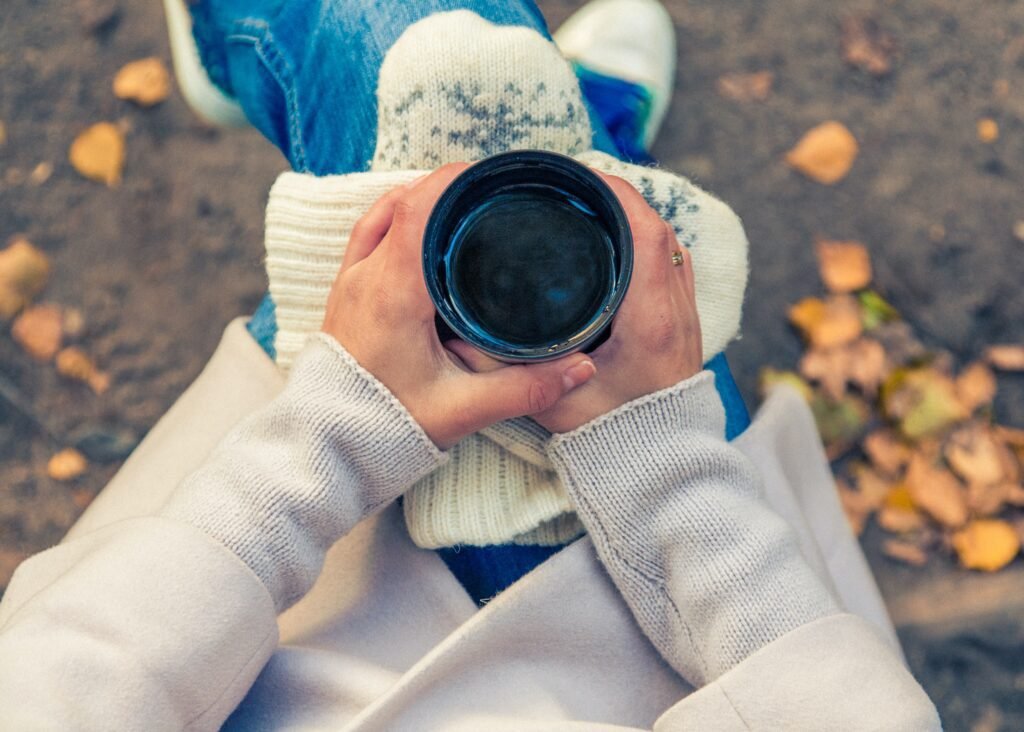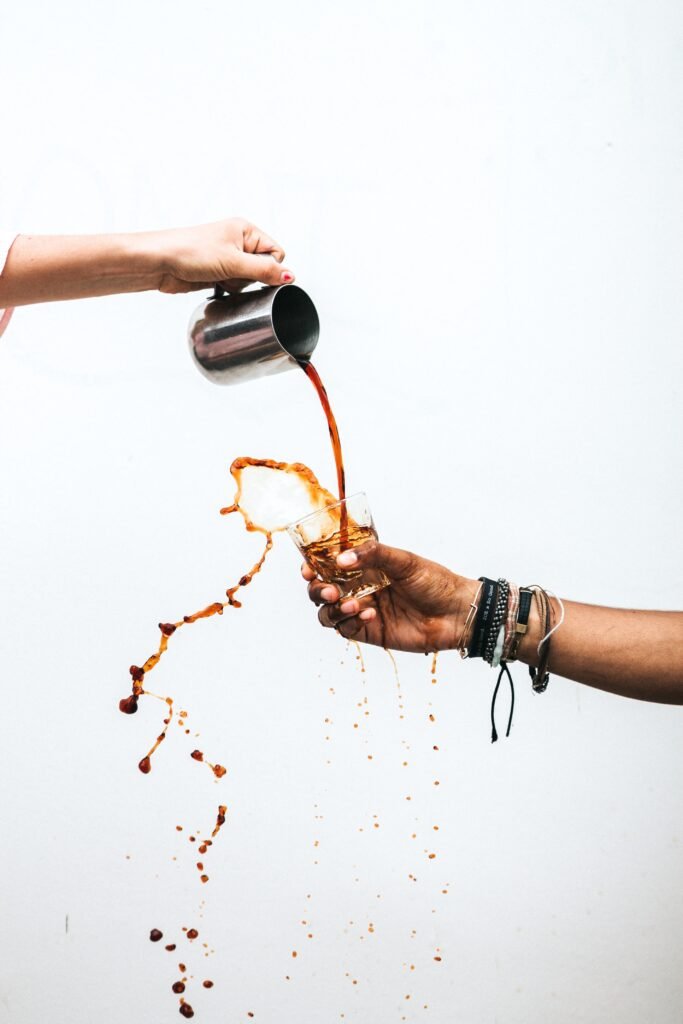Welcome to Caffeinated Blogging, where the world of coffee comes alive with every sip. From brewing techniques and coffee reviews to home roasting tips and the fascinating relationship between coffee and wellness, we cover it all. Immerse yourself in global coffee traditions, learn barista skills, and discover the best sustainable practices. Join us as we explore coffee shops and share unique experiences worldwide. And of course, stay updated with the latest in coffee gadgets and accessories. Coffee is more than just a drink; it’s an experience, a culture, and a community. Embark on this exhilarating journey through the world of coffee with us, starting with the captivating connection between Coffee in Literature and Film.
Coffee and Wellness
The Health Benefits of Coffee
Coffee is much more than just a delightful pick-me-up in the morning; it’s also loaded with numerous health benefits. Studies have shown that coffee consumption is associated with a reduced risk of several diseases, including type 2 diabetes, Parkinson’s disease, and liver cancer. The antioxidants present in coffee help protect the cells in our bodies from damage and inflammation. Additionally, coffee contains essential nutrients such as riboflavin, potassium, and magnesium, which contribute to our overall well-being.
The Effects of Coffee on Mental Health
Coffee not only helps to wake up our bodies but also provides a boost to our minds. The caffeine present in coffee stimulates our central nervous system, which can improve our mood and increase alertness. Research has shown that coffee consumption has been linked to a reduced risk of depression and suicide. It can also enhance cognitive function, memory, and focus. However, it’s important to remember that moderation is key, as excessive caffeine intake can lead to anxiety and sleep disturbances in some individuals.
Coffee and Exercise: How They Work Together
For those who enjoy an active lifestyle, coffee can be a beneficial companion. The caffeine in coffee has been found to increase endurance and improve performance during physical activities. It stimulates the release of fatty acids from our fat tissues, which are then used as fuel for our muscles. Additionally, coffee can also reduce muscle pain and soreness, allowing for quicker recovery after a workout. However, it’s important to note that everyone’s tolerance to caffeine is different, so it’s best to listen to your body and consume coffee in a way that works for you.
Coffee in Literature
The Symbolism of Coffee in Literature
Throughout the history of literature, coffee has often been used as a powerful symbol. It represents various themes such as energy, stimulation, socialization, and rebellion. In many literary works, coffee symbolizes the awakening of the mind and the breaking of societal norms. It can also represent intimacy and connection between characters, as sharing a cup of coffee often symbolizes a deep conversation or a moment of closeness.
Famous Coffee Scenes in Literature
There are several iconic coffee scenes in literature that have left a lasting impression on readers. One such scene can be found in J.K. Rowling’s Harry Potter series, where Harry and his friends often gather in the cozy environment of the Hogwarts common room, sipping cups of coffee while engaging in lively discussions. Another memorable coffee scene can be found in Truman Capote’s “Breakfast at Tiffany’s,” where Holly Golightly and the narrator share a cup of coffee early in the morning, symbolizing their connection and shared understanding.

Coffee in Film
Coffee as a Plot Device in Film
Coffee has played a significant role in many films, often serving as a plot device that drives the story forward. It can be used to establish a character’s habits or preferences, creating depth and realism. In some films, coffee is depicted as a source of comfort and routine in the midst of chaos or as a symbol of sophistication and status. Whether it’s a character’s morning ritual or a pivotal coffee shop conversation, coffee can add layers of meaning and enhance the overall cinematic experience.
Memorable Coffee Scenes in Film
Coffee scenes in films have left a lasting impact on audiences, becoming iconic in their own right. One such scene can be found in Quentin Tarantino’s “Pulp Fiction,” where Samuel L. Jackson’s character, Jules Winnfield, delivers a monologue about his love for a “tasty beverage” while enjoying a cup of coffee at a diner. Another memorable coffee scene can be found in the romantic comedy “When Harry Met Sally,” where the characters discuss the differences between men and women while sharing a cup of coffee in a charming café.
Coffee and Relationships
Coffee Dates: A Classic Romantic Setting
There’s a reason why coffee dates are a classic choice for romantic encounters. The cozy atmosphere of a coffee shop provides the perfect setting for getting to know someone and building a connection. It allows for uninterrupted conversation, creating an intimate space where two people can focus on each other. The act of sharing a cup of coffee can also be seen as a gesture of care and consideration, as it shows that you value the other person’s time and company.
Coffee and Friendships: Bonding over a Cup
Coffee has a unique way of bringing people together and strengthening friendships. Whether it’s catching up with a friend over a cup of coffee or meeting someone new at a coffee shop, the act of sharing a beverage creates a sense of warmth and camaraderie. Coffee breaks in the workplace often serve as opportunities for socializing and building connections with colleagues. The casual and relaxed nature of coffee allows for an easy flow of conversation and helps foster meaningful relationships.

Coffee and Work
The Role of Coffee in the Workplace
Coffee and the workplace go hand in hand. It’s not uncommon to find coffee machines or coffee stations in offices around the world. Coffee serves as a fuel that keeps employees energized and focused throughout the day. It’s a staple of the morning routine, helping to kickstart the workday and providing a burst of productivity. In addition, the act of taking a coffee break can serve as a much-needed mental break, allowing individuals to recharge and refocus.
Productivity and Focus: How Coffee Helps
The caffeine in coffee is known to enhance alertness and concentration, making it a valuable aid in the workplace. It stimulates the release of neurotransmitters in the brain, improving cognitive function and allowing for better focus and attention to detail. Coffee has also been found to increase motivation and reduce the feeling of fatigue, helping individuals stay engaged and productive throughout their workday. However, it’s important to find the right balance and not rely solely on coffee for productivity, as proper sleep and a healthy lifestyle are equally essential.
Coffee Cultures Around the World
Coffee Traditions in Different Countries
Coffee holds a special place in the cultural fabric of various countries around the world, each with its unique coffee traditions. In Ethiopia, the birthplace of coffee, a traditional coffee ceremony called “Buna” is a significant social and cultural event. In Italy, coffee is a way of life, with the ritual of enjoying a perfectly brewed espresso being deeply ingrained in daily routines. From the strong and bold flavors of Turkish coffee to the sweet and creamy Vietnamese coffee, each country’s coffee traditions offer a glimpse into their rich cultural heritage.
Coffee Rituals and Ceremonies
Coffee rituals and ceremonies have been an integral part of cultural practices for centuries. These rituals often involve precise brewing methods, intricate preparations, and ceremonial gestures. In Japan, the art of pour-over coffee, known as “siphon brewing,” is a revered practice that emphasizes precision and attention to detail. In Middle Eastern countries, the preparation and serving of coffee in small cups, often accompanied by dates or sweets, is a symbol of hospitality and generosity. These rituals not only celebrate the enjoyment of coffee but also serve as a medium for cultural expression and connection.
Cultural Significance of Coffee
Coffee is more than just a beverage; it holds immense cultural significance in many societies. In some cultures, coffee plays a pivotal role in social gatherings and ceremonies, acting as a symbol of hospitality and community. It can serve as a bridge between generations, with older family members passing down traditional coffee rituals to younger ones. Coffee shops and cafes are often central hubs of social interaction, where people gather to engage in conversation, share ideas, and form connections. The cultural significance of coffee reinforces its role as a unifying force in communities worldwide.

Coffee as a Catalyst for Creativity
Artistic Inspiration: Coffee’s Influence on Creativity
Coffee has long been associated with the creative process, acting as a stimulant for artists, writers, and musicians alike. It’s no coincidence that many creative geniuses throughout history have been avid coffee drinkers. The caffeine in coffee can enhance focus and mental clarity, allowing for a flow of ideas and inspiration. The ritual of brewing and drinking coffee can also provide a comforting routine that helps jumpstart the creative process. Whether it’s writing a novel, composing music, or painting a masterpiece, coffee has become a cherished companion for many creatives.
Coffeehouses as Creative Hubs
Coffeehouses have historically been hotbeds of artistic and intellectual activity. They have served as gathering places for like-minded individuals to exchange ideas, engage in debates, and find inspiration. Coffeehouses have been the birthplace of many literary movements, political discussions, and artistic collaborations. From the famous gatherings at Café de Flore in Paris during the existentialist era to the Beat Generation’s meetings at Café Reggio in New York City, coffeehouses have provided the ideal environment for creative minds to come together and thrive.
Coffee in Historical Context
Coffee’s Impact on Society
Coffee has had a profound impact on societies throughout history. In the 17th century, coffeehouses emerged as social spaces where people from all walks of life could gather, discuss ideas, and share information. These establishments became centers of political discourse, intellectual debates, and cultural exchange. Coffee’s popularity and accessibility helped foster a sense of equality and inclusivity, breaking down societal barriers and creating a space for dialogue and knowledge sharing.
Coffeehouses in History
Coffeehouses have played a significant role in shaping history. They have been the meeting places for intellectuals, revolutionaries, and thinkers who have gone on to shape the course of society. In the 18th century, coffeehouses in Europe were known as “penny universities” because for the price of a cup of coffee, one could engage in stimulating conversations and gain knowledge that was typically reserved for formal educational institutions. These establishments provided a platform for the free exchange of ideas and contributed to the intellectual and cultural progress of their respective societies.
Coffee and Revolution
Coffee has been intertwined with various revolutionary movements throughout history. The French Revolution, for example, saw the rise of coffeehouses as meeting places for revolutionaries and intellectuals, serving as hubs of political activism and social change. The American Revolution also had its fair share of coffee-fueled discussions, with colonial leaders meeting in taverns and coffeehouses to strategize and unify their cause. Coffee’s association with rebellion and revolution is a testament to its power to inspire and mobilize people towards a common goal.

The Politics of Coffee
Fair Trade and Ethical Coffee
In recent years, there has been a growing concern for the ethical sourcing and production of coffee. Fair trade practices aim to ensure that coffee farmers receive fair wages and have access to safe working conditions. Fair trade coffee also promotes sustainable farming methods and environmental stewardship. By supporting fair trade and ethical coffee, consumers can contribute to a more equitable global coffee industry and make a positive impact on the lives of coffee farmers and communities.
Coffee and Global Inequality
Coffee production is often concentrated in developing countries, where many coffee farmers struggle to make a living wage. The global coffee industry has been plagued by issues of exploitation and a lack of transparency. Global inequality is evident in the vast disparity between the prices paid to coffee producers and the prices charged to consumers in affluent countries. By raising awareness and supporting initiatives that promote equity and transparency in the coffee supply chain, we can work towards a more just and sustainable coffee industry.
The Evolution of Coffee in Popular Culture
From Coffeehouses to Coffee Chains
The popularity of coffee has evolved over the years, from the humble coffeehouses of the past to the ubiquitous presence of coffee chains in today’s world. Coffeehouses, with their cozy ambiance and intellectual gatherings, have given way to the rise of coffee chains that offer convenience and consistency. While coffee chains have faced criticism for their mass production and standardized flavors, they have also made coffee readily available to a wider audience, bringing the joy of coffee to people around the world.
Coffee’s Popularity in the Modern World
In the modern world, coffee has become a staple in the daily lives of millions. Its popularity can be attributed to various factors, including its stimulating effects, rich flavors, and social significance. Coffee has become synonymous with productivity, with many individuals relying on its energizing qualities to kickstart their mornings or stay focused throughout the day. It is also a beverage that brings people together, connecting individuals in a shared love for the aroma and taste of coffee.
In conclusion, coffee holds a special place in our lives, touching on various aspects of our well-being, culture, and creativity. From its numerous health benefits to its role in literature, film, and relationships, coffee has become an integral part of our everyday lives. Its global significance, historical impact, and evolving presence in popular culture showcase the enduring and beloved nature of this remarkable beverage. So, grab a cup of coffee, savor its flavors, and embrace the rich experiences it brings. Welcome to the wonderful world of coffee!


